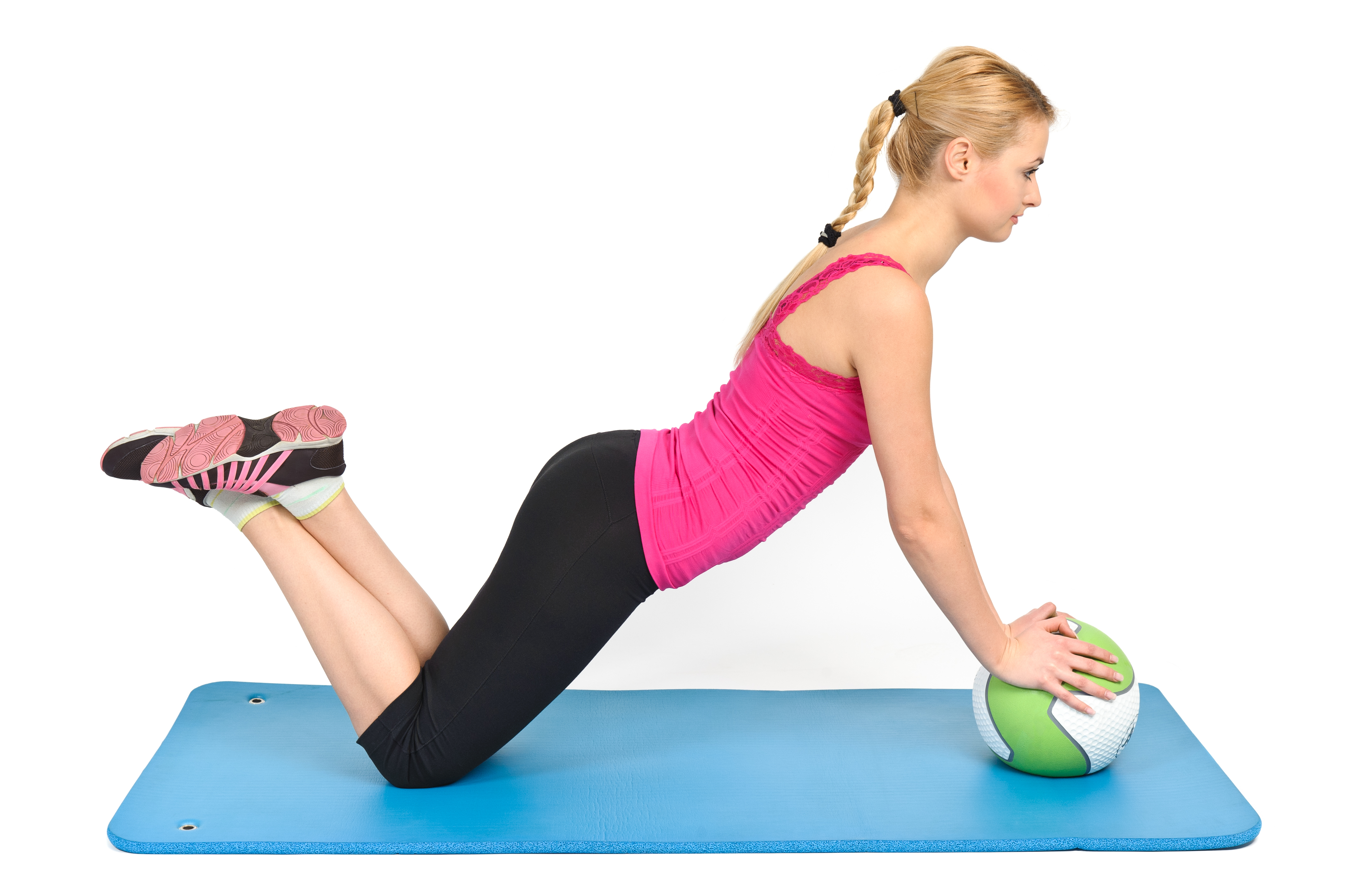
We often get asked, “Is it okay to do push-ups?” And my response is often, well, it depends. If you are using the proper form and you currently don’t have any shoulder issues or limitations, then push-ups can be a great exercise.
2. With your hands on the ground, gently squeeze your shoulder blades down and back.
3. Tighten your lower abdominals as if bringing belly button to spine. Hold this position and for a “full push-up” step your feet back into a high plank position.
4. Keeping your elbows close to your sides, slowly lower yourself over a count of 3 and then power yourself back up with a count of 1.
You should be able to keep your shoulder blades engaged down and back on your thorax or rib cage and your abdominals tight.
If you can’t, or feel yourself compensating by flaring the arms out to the side or sagging your back, then the exercise is too hard and you should drop to your knees for a “half push-up”. You do all of the above, the only difference is you are on your knees vs on your toes which decreases the body weight into the arms.
Push-ups work several muscles in the body – the most obvious being pectoralis major and minor and triceps. But it also works your deltoids, serratus anterior, rhomboids and trapezius muscles (if you keep shoulders down and back), all the abdominals (Rectus, obliques, and transversus), and your gluteals.
However, because it is such a “pec dominant” exercise, I generally advise to stretch your pecs after doing a set of push-ups. Having too tight of pecs leads to bad posture with forward rounded shoulders.
You can stretch your pecs by laying longways on your foam roller with the arms out to the side like a T or in a doorway with the arms and elbows bent to 90 degrees and gently lunging through the doorway, keeping your head neutral.
Push-ups are not for everyone. If you have any pain doing push-ups, you should stop. If you have poor form while doing a push up, you should stop.
You may be pinching your rotator cuff or irritating your biceps tendon or a number of other issues that can arise from poor form.
If you need help making sure your push up form is correct or to determine if you should be doing them right now, ask one of our therapists next time you see them!
In-Person and Online Consultations


